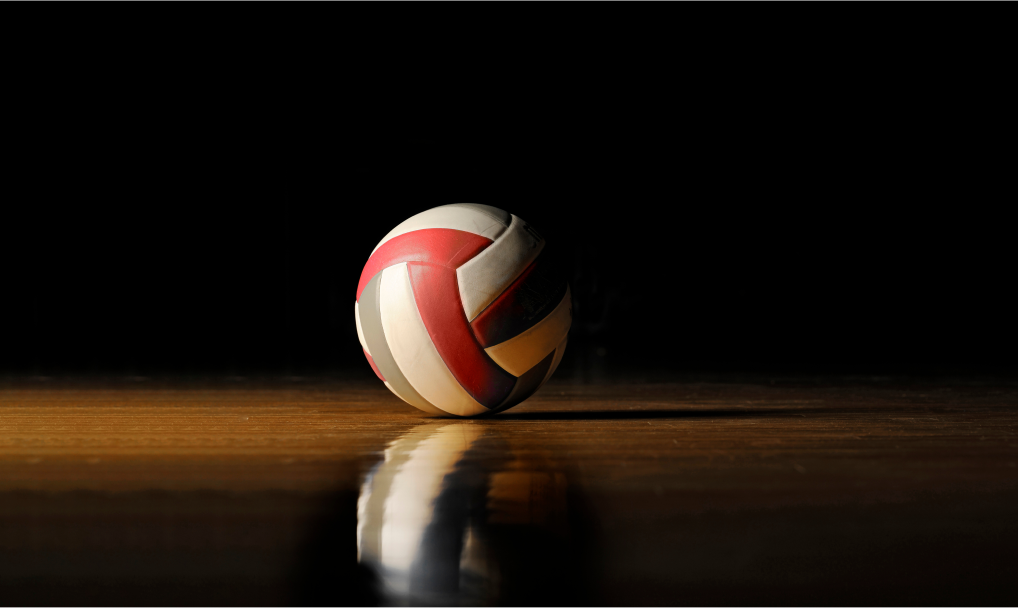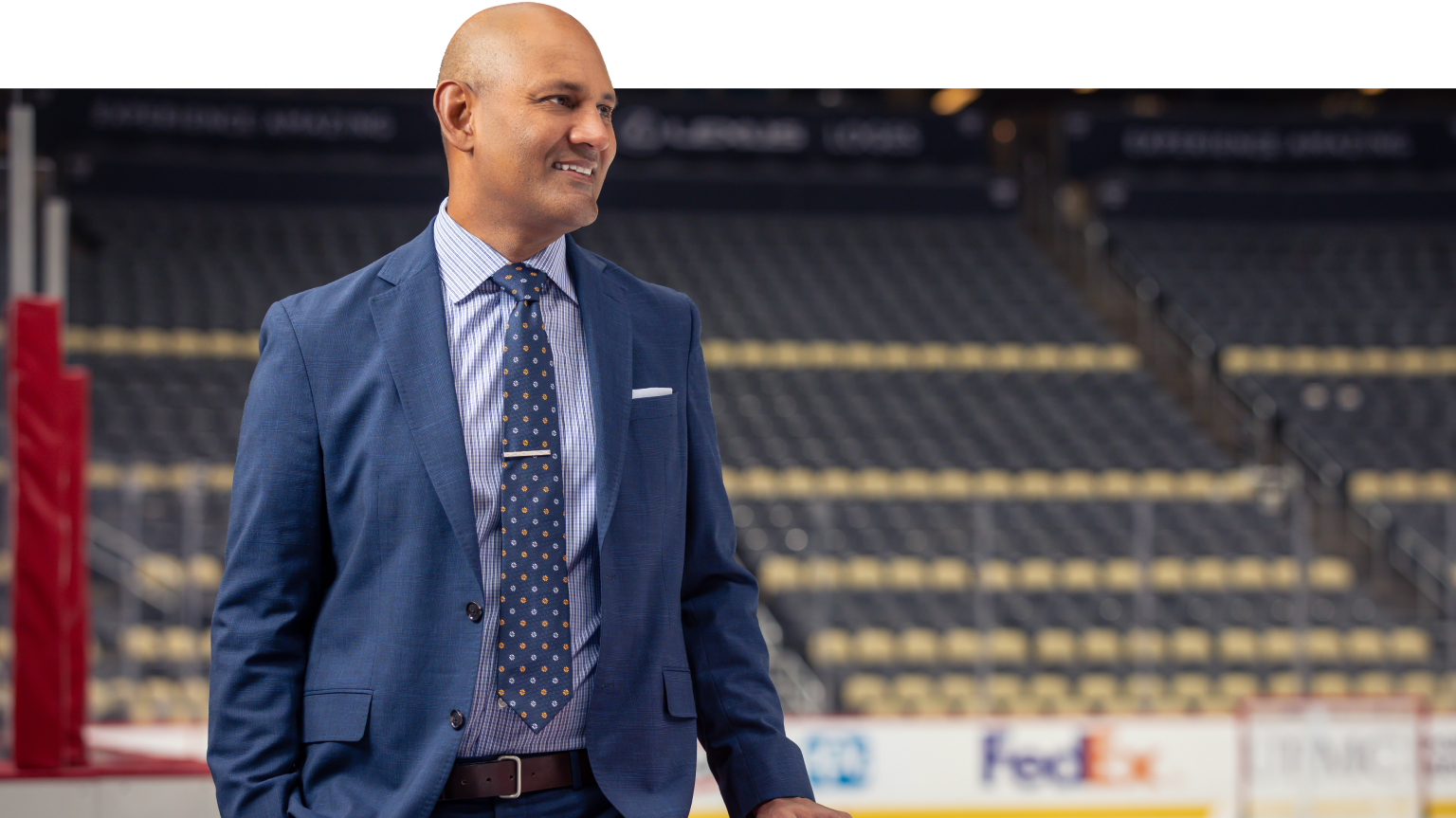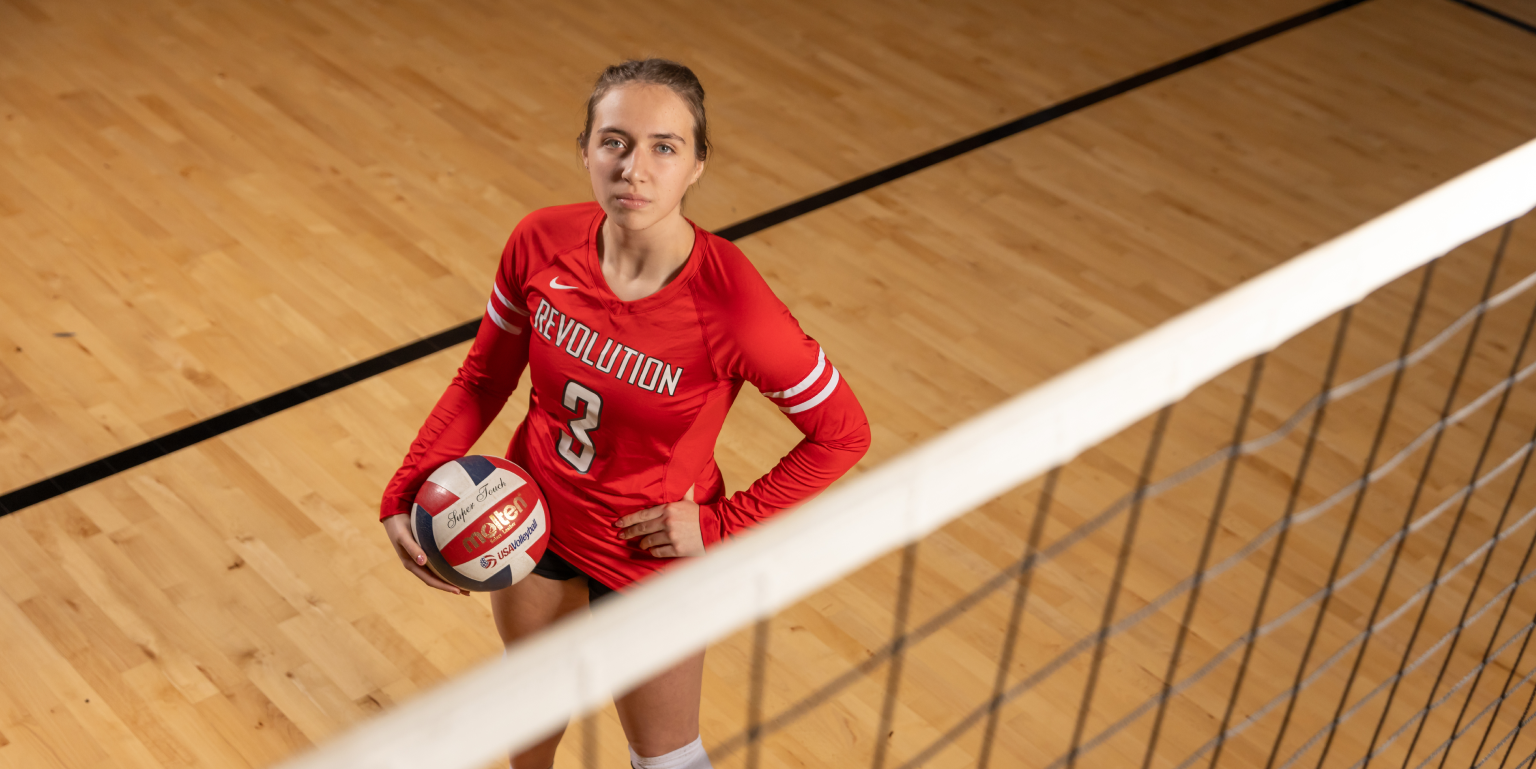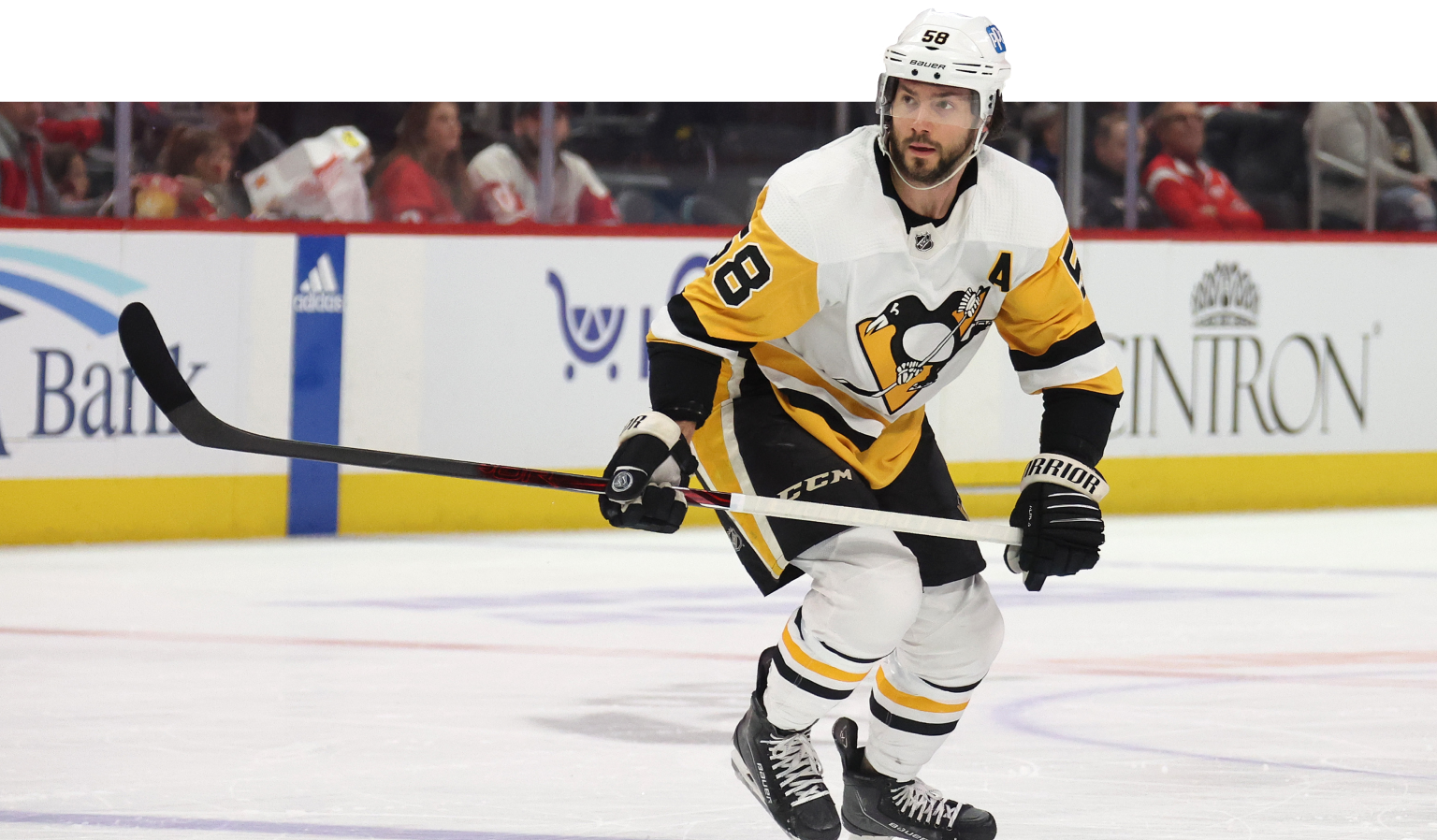“I knew right away it was a pretty bad injury,” says volleyball player Alexis Fowler, 16. “I went to jump up for the ball, and then someone landed on me. I tore my ACL meniscus and MCL.”
Tears to the ACL (anterior cruciate ligament) and MCL (medial collateral ligament) are common knee injuries, but some are worse than others. Alexis’s was bad. Fighting back tears of pain and fear, she wondered if her dreams of playing her favorite sport had crashed. “I got an MRI and they were like, yeah, you pretty much tore the whole thing,” she remembers.
Fortunately, her dad, John Fowler, MD, is an orthopaedic surgeon at UPMC who knew exactly who to call: Dharmesh Vyas, MD, PhD, an orthopaedic sports medicine specialist who is medical director of UPMC’s Mario Lemieux Sports Complex as well as head team physician of the Pittsburgh Penguins.
Dr. Vyas came to Pittsburgh in 2010 for a dedicated fellowship with the legendary Freddie Fu, MD, longtime chairman of the University of Pittsburgh Department of Orthopaedic Surgery, creator of UPMC’s world-renowned sports medicine program, and head team physician for Pitt’s Department of Athletics. Dr. Fu died in 2021, not long after announcing Dr. Vyas’s leadership of the new Sports Complex.
With UPMC Shadyside expanding its dedicated orthopaedic sports medicine program, Dr. Vyas now provides non-operative and operative treatment of sports- and non-sports–related injuries here. He specializes in injuries to the shoulder, hip, and knee. “Shadyside has a great staff, excellent facilities, and it’s very convenient for patients. The nursing staff takes wonderful care of my patients there,” Dr. Vyas says.
“Although we care for professional athletes, I’d say 90 percent of my work really is dedicated to recreational athletes — from eight-year-olds all the way to 80. What we’re trying to do in sports medicine is take these people who are highly functioning and get them back to doing what they love to do. What drives me is the desire and motivation that every active person has to return to their individual sport. That’s the same whether they are a professional or a recreational athlete,” says the surgeon, who has played soccer all his life and suffered his own share of injuries. “I really respected the medical staffs that took care of me. So I wanted to do the same thing for other athletes.
“I feel honored to be able to care for these people,” he adds. “I enjoy my relationships with my patients. Many people, when they are injured, think they’ll never get back to doing what they love to do, whether it’s running, football, or working. After surgery, when they’ve recovered, it’s great to see them realizing that they’re back. That’s very rewarding.”
“You know what? I’m gonna get better.”
So it’s hardly surprising that when Dr. David Glorioso developed head and neck I love playing volleyball so much,” says Alexis Fowler. “I fell in love with it when I was in fourth grade and we were visiting Philly, and I saw all these girls at the USA Volleyball Northeastern Qualifier. I thought it was the coolest thing ever. I had to be part of it. As I got older, I got more and more competitive. I started playing for my school and going to camps. Then I actually got the chance to play in the Northeastern Qualifier — where it all began for me.
“So when I got hurt, I was devastated. But Dr. Vyas was super upfront and so good at explaining everything to me,” says Alexis. “Just the explanation motivated me to keep going.



